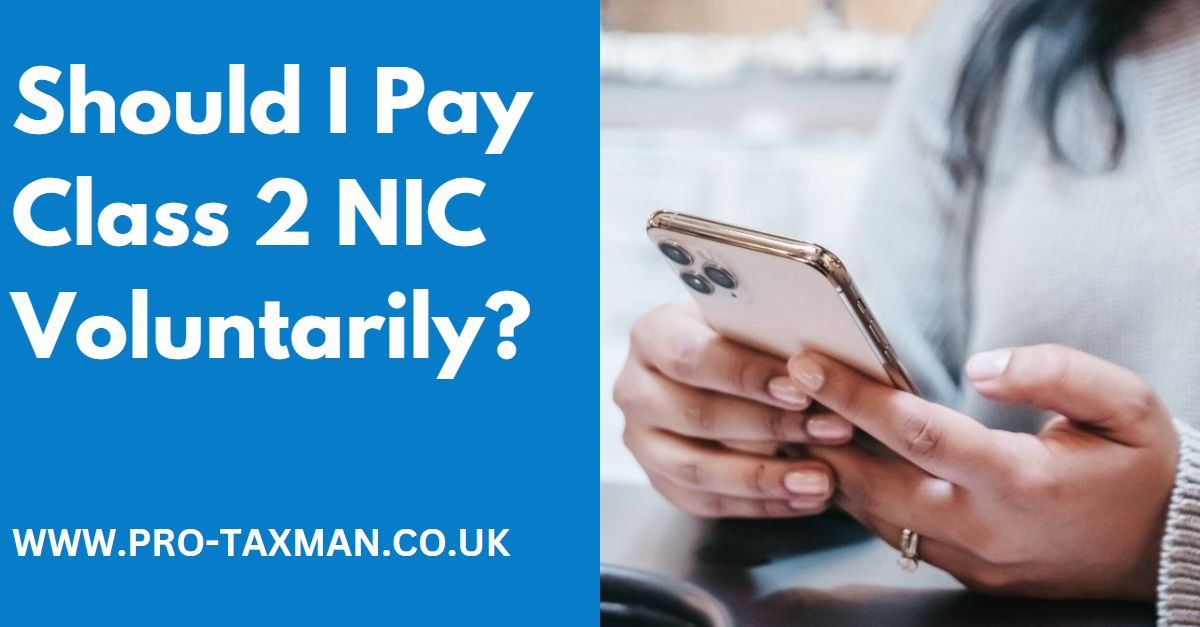Entitlement to the state pension and certain contributory benefits depends on an individual having paid, or been credited with, sufficient National Insurance contributions.
To qualify for the full single-tier state pension, an individual needs 35 qualifying years. A reduced state pension is paid where a person has less than 35 qualifying years, but at least 10.
There are different Classes of National Insurance contribution and the Class paid depends on whether an individual is employed or self-employed. A further Class, Class 3, can be paid voluntarily where an individual wants to top up their contribution record.
Self-employed earners
Although self-employed earners are required to pay both Class 2 and Class 4 National Insurance contributions once their profits reach the relevant thresholds, it is only the payment of Class 2 that counts towards their state pension entitlement.
Class 2 contributions are weekly flat-rate contributions which must be paid by self-employed earners whose earnings exceed the relevant threshold.
For 2022/23 and later tax years, Class 2 National Insurance contributions are payable once profits exceed a new threshold, the lower profits threshold. This is aligned with the lower profits limit for Class 4 contribution and for 2022/23 is £11,908. This means that the starting point for Class 2 and Class 4 contributions is now the same. Where profits are at or above this level, the contributor must pay Class 2 contributions. For 2022/23 these are at rate of £3.15 per week. Class 2 contributions are paid through the self-assessment system with tax and Class 4 contributions. Where the earner has been self-employed throughout 2022/23 Class 2 contributions for the year are payable in a lump sum of £163.80 (52 weeks at £3.15 per week) by 31 January 2024.
Where earnings from self-employment are between the small profits threshold, set at £6,725 for 2022/23, and the new lower profits threshold, for 2022/23 onwards the self-employed earner is treated as having paid Class 2 contributions at a zero rate. The effect of this is that the year counts as a qualifying year for state pension and benefit purposes despite the earner having paid no actual Class 2 contributions. This places a self-employed earner with low earnings in a similar position to an employed earner with low earnings. For 2021/22 and previous tax years, Class 2 contributions were payable at the usual weekly rate once earnings reached the small profits limit.
A self-employed earner with profits below the small profits threshold does not benefit from notional contributions, and unless they pay another Class or receive National Insurance credits, they will need to pay sufficient voluntary contributions for the year to be a qualifying year.
While a self-employed earner whose earnings are below the small profits threshold is not obliged to pay Class 2 National Insurance contributions, they are entitled to. This opens up a low cost route to securing a qualifying year, as paying Class 2 contributions at £3.15 per week for 2022/23 is far cheaper than paying voluntary Class 3 contributions at £15.85 per week – an annual saving of £660.40.
Is it worthwhile?
Whether paying Class 2 contributions is worthwhile will depend on an individual’s circumstances. If they already have 35 qualifying years, or expect to do so without making voluntary contributions by the time that they reach state pension age, there is nothing to be gained from paying Class 2 contributions voluntarily. You can check your state pension entitlement via the HMRC app or online at www.gov.uk/check-state-pension.
Where a person also has a job and will pay Class 1 National Insurance contributions on earnings equal to 52 times the weekly lower earnings limit (£6,396 for 2022/23), they will secure a qualifying year from the payment of Class 1 contributions. Likewise, if an individual receives National Insurance credits, for example, because they are registered for child benefit for a child under the age of 12, it will not be worthwhile paying voluntarily Class 2 National Insurance contributions.
However, where a person has less than 35 qualifying years and is looking to build up their state pension entitlement, serious consideration should be given to paying Class 2 contributions. At 2022/23 rates, each additional qualifying year increases the state pension by £5.29 per week. For a cost of £3.15 a week, this is definitely worthwhile.
Need professional accounting service or accounting advice? Contact us to book a 15-min Free Consultation with us today.
To find out more please follow us on Facebook, Twitter, or LinkedIn. Feel free to contact us on 0333 006 4847 or request a call back by texting 075 6464 7474

